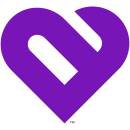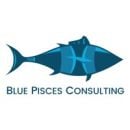Career change isn’t for everyone. It’s an uphill battle of company and industry research, countless meetups, dozens of cover letters, competition with more experienced candidates, networking dates, and rejection after rejection.
These seven women shared why it’s worth it.
For them, transitioning into tech not only required learning new skills, but also necessitated self-development. Overcoming imposter syndrome demanded rewiring their thinking patterns to focus on positivity and confidence. Brandee Sanders, marketing director at point-of-sales platform Appetize, said she had to learn to tune out the naysayers, which often included herself.
Once they decided to make the leap, the seven women we spoke with said they tried not to view starting a new career as starting over. Being transparent with employers and networking connections (even if they weren’t in tech) helped many of them build supportive communities.
When hiring managers saw a lack of tech experience on their resumes, they leaned into past roles in other industries and described how skills like empathy and communication could be applied to the current job. But most of all, they let their excitement shine through. On most job applications, passion is an unwritten requirement.
Thurnau said she used her previous teaching and management skills when pursuing a career in software engineering at Endpoint. Reframing her experiences as useful helped her manage imposter syndrome. It’s important to have an optimistic attitude when beginning again; it’s an opportunity, not a setback.
When and why did you decide to make a career change?
After eight years as a teacher of the Deaf and hard of hearing, a cross-country move helped me realize that I wanted a change. My friend Abby, a female engineer who successfully transitioned from teaching into software engineering, encouraged me to try it out. The first step was recognizing that teaching skills like project management and communication, coupled with my natural talent for languages, are also qualities of a good software engineer. I was already an expert in breaking down large tasks into more manageable parts and had the tenacity to work hard at something new.
When I reframed my experiences this way, I saw that embarking on this path wasn’t as daunting as I initially thought. I chose a high-risk, high-reward path by enrolling in a full-stack web development bootcamp. I landed an internship which turned into my first job and I’m now a software engineer at Endpoint.
What challenges did you face while establishing yourself in this new career, and how did you overcome those challenges?
Managing imposter syndrome. At first, it was difficult to see how I would fit in. There’s always going to be a learning curve when starting something new, but everything I’ve learned along the way contributes to my future success.
To overcome this challenge, I remind myself that I’ve been developing for a while now, and reflect on the cool software I’ve built and the praise I’ve received from managers and peers. I think about how hard it felt to make that first project — or even something I made two months ago — and how easy it feels today. It’s important to acknowledge that imposter syndrome is not a weakness and is something that many have to deal with when entering a new environment.
What advice do you have for other people who are considering making a career change?
View being a beginner again as an opportunity. Ask questions, do your research and enjoy the satisfaction of keeping your brain sharp and nimble with new challenges.
Once you’ve decided to pursue a career change, you’ve got to give it all you have. I don’t regret the many late nights I spent in development bootcamp and at my first two software engineering jobs. When it became clear this career wasn’t going to be easy for me, I refused to give up. Ask questions, do your research, and enjoy the satisfaction of keeping your brain sharp and nimble as you solve new problems. As your hard work pays off, it will motivate you to keep learning. In my experience, management will also notice and reward your dedication.
Before she was a data engineer at WELL Health, Clayton taught computer science at an all-girls school. To make the transition from education to tech, she started teaching herself programming. For those aspiring to work in tech, Clayton said to expect a difficult but rewarding experience.
When and why did you decide to make a career change?
After graduating with an engineering degree, I taught at an all-girls school for 3 1/2 years. I really liked teaching, but I always knew I wanted to pursue a career in engineering or STEM at some point.
I knew I wanted to work for a software company, but I couldn’t imagine myself working for a large company with a product that wasn’t connected to touching people’s lives in some way.
When I graduated from college, I saw that any engineering job required programming abilities. I started teaching myself and then an opportunity opened up at the school to teach computer science. I knew that if I wanted to work for a software company, the ability to program is something I would need.
What challenges did you face while establishing yourself in this new career, and how did you overcome those challenges?
When you don’t have a background in SaaS and you’re eager to learn, that may mean working a lot of hours. But, that’s just part of switching careers. It’s extremely demanding, but I look at it in a positive light. When do you get opportunities to learn all these things and also free reign to accomplish them? My boss trusts me to make the best call even if I’ve never encountered something before.
What advice do you have for other people who are considering making a career change?
If you decide on a career change, it is worth throwing yourself into it and grinding it out in those first couple months to get as much information as you possibly can and learn as much as you can. Expect it to be difficult.
Make sure you’re entering a job where there are patterns of people having opportunities and promotions when they’ve shown dedication and work ethic. I wouldn’t have thrown myself into the work if I didn’t see others around me at WELL progressing in their careers. Seeing the internal promotions inspired me to work as hard as I did.
When Conway was switching from marketing to technology, she wasn’t as concerned with her job title as she was with who she was working with. It was important for her to work with a supervisor who could serve as a mentor and offer guidance. Finding mentorship early in her career helped her land a job at Blue Pisces.
When and why did you decide to make a career change?
I switched from marketing to technology. Since it was pretty early in my career, I was able to apply for entry-level tech jobs. Even though I had a bachelor’s in business, I took numerous tech courses at the local college to familiarize myself with more up-to-date technology. I wasn’t selective about which industry I wanted to work in, but I was particular about who my direct supervisor would be. I knew that I wanted to work for someone who was going to provide me guidance and mentorship, someone who would give me the leeway to make mistakes and learn. Having that mentorship early on in my career was important and I feel like that decision paid off in a big way.
What challenges did you face while establishing yourself in this new career, and how did you overcome those challenges?
Much of the challenge was internal. I felt I wasn’t qualified enough for the technical roles out there. I felt I was not smart enough to handle a tech job. I overcame the insecurities and challenges by absorbing all that I could from all available means: books, classes, seminars, networking and candid conversations. I asked a lot of questions. I was fortunate to have a manager that was supportive and very encouraging.
What advice do you have for other people who are considering making a career change?
Play to your strengths and be true to yourself. If you have an interest in the arts and are good at it, then stick with that. It doesn’t mean you cannot pursue a career in technology, but try to incorporate the artistic side. You will find more joy and success in pursuing your passion. Often, people try to fit into a job because it pays well. Change will be scary and uncertain, but if you follow your gut instinct, you will undoubtedly find your rhythm and be successful. Lastly, be prepared! Technology is one field where change is certain and it is imperative that you follow suit, either by taking courses, attending conferences, getting certifications in new technology or any other means available to you.
As a copywriter, Matthews said she got interested in graphic design and web development by working next to those departments. Asking to work on extra design projects allowed her to move into content strategy and information architecture. From there, independent learning helped her land a UX designer role and finally, a position at Headspace.
When and why did you decide to make a career change?
I started out copywriting for a boutique digital agency in NYC. I ended up working with a user experience designer. I had always dabbled in graphic design and web development, so I was amazed that there was a job where my interests overlapped so well. I loved the idea of being creative every day while still having a meaningful impact on people’s lives. I started to ask around to see if there was any way I could help with the design work at the agency I was freelancing at. It began as just writing functional specifications, but then it moved into something like content strategy. From there, information architecture. Bootcamps and certificates in UX and product design weren’t really a thing yet, so I did a ton of independent learning and reading. Eventually, I landed my first official UX designer role.
What challenges did you face while establishing yourself in this new career, and how did you overcome those challenges?
I had a lot of imposter syndrome because so many of my peers had gone to design school or art school. I felt really unpolished. Instead of dwelling on the skills that needed development, I remembered my assets. My time as a therapist made me uniquely qualified to understand and empathize with people. I understood people systems and ecosystems well because that’s how you’re taught to think about your clients in social work school. I had to become really adept at telling my story and knowing my value so that people could see past any technical skills I was missing. In the meantime, I also worked my butt off catching up on those technical skills.
What advice do you have for other people who are considering making a career change?
Don’t discount the experience you already have. I teach UX at UCLA Extension and so many of my students are career changers and they approach their job search as though they are inexperienced, even though they may have several years of experience in another field. Think about the overlap between the two fields, because there is one. Find that overlap and craft your story from that. Even if you’re applying for junior roles, don’t have a junior mindset. This is what will make you stand out from the other applicants.
Kim entered tech after college, but she wasn’t working in her dream role within the industry. To step into software development, she took part-time courses and taught herself coding from online classes before landing a position at AppOnboard.
When and why did you decide to make a career change?
I got into the tech industry right after graduating college as a social media marketer. From that opportunity, I was exposed to the startup life and was lucky to be surrounded by friends who happened to be developers. I also got the chance to start designing websites myself. I realized I really enjoyed software development and that marketing was not for me. One of the major steps I took to grow in that direction was taking a part-time course from General Assembly to learn iOS mobile development and Swift. I continued self-learning by taking online courses from FreeCodeCamp and other resources.
What challenges did you face while establishing yourself in this new career, and how did you overcome those challenges?
One of the challenges I faced was sometimes feeling stuck or alone in my career change journey. On top of working my regular job, there were many hours spent debugging and working on apps, which were taxing physically and mentally. I decided I needed to network more, so I started going to local meetups, workshops and hackathons to meet other engineers who offered good advice.
What advice do you have for other people who are considering making a career change?
Do not give up. If you can, find a mentor or a buddy who can pair program with you. It significantly helps to talk to someone who has experience. Surround yourself with people who will push you in the right direction.
After graduation, Teichmiller said she wasn’t ready to enter the tech workforce yet. She spent five years with Teach For America before pivoting careers. During interviews, she was transparent with hiring managers about how her teaching skills were applicable to the desired role before eventually landing a position at SimplePractice.
When and why did you decide to make a career change?
In college, I focused my studies on psychology and social welfare. Toward the end of my time at the University of Alabama, I was looking for a way to give back to my community and was fortunate to be recruited by Teach For America. I knew I wanted to spend five years working in education and I made a promise to myself that I would ultimately get back to a career more aligned with the career goals I had when I was in college. I loved working with my students, but at the end of five years having worked and taught in both Montgomery, Alabama and Los Angeles, I was ready to fulfill the promise I had made to myself.
What challenges did you face while establishing yourself in this new career, and how did you overcome those challenges?
I faced a lot of hesitation from companies on how a teacher could switch careers. To overcome that, I made sure to honestly share my story, why I wanted to work with them and how the skills I had grown as a teacher would directly translate to success in the role for which I was applying. I’m so grateful to have found such an encouraging and supportive environment at SimplePractice. Not only could I be myself without judgment, but I could also use the skills I had already been growing to help propel our company forward.
What advice do you have for other people who are considering making a career change?
I hate living with “what ifs,” regrets and broken promises. Find out how to be competitive, make a plan and identify your needs, wants and dealbreakers, and start taking action. Do you need to brush up on or learn certain skills? Do you have contacts in your network who you can reach out to for advice or to point you in the right direction? Should you reach out to someone on LinkedIn who was featured in a blog post you found especially helpful? Better to take a step in a new direction than to stay in the same spot mulling over those pesky “what ifs,” regretting not making a move or feeling guilty about breaking a promise you made.















